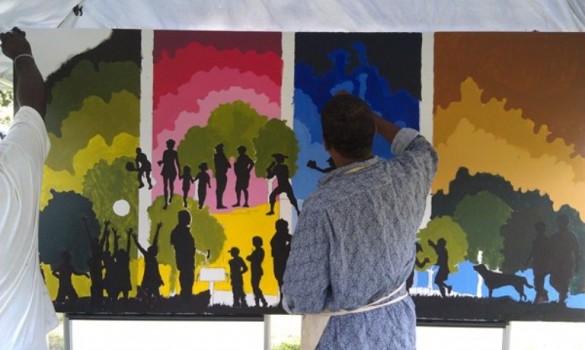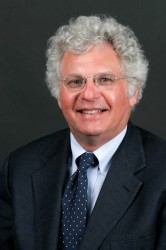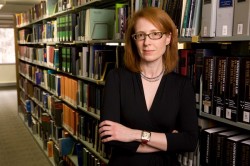
Nashville should form a new public-private partnership to move the city toward becoming an “ever more welcoming and inclusive city,” according to a report prepared by Vanderbilt sociologist Dan Cornfield in collaboration with Nashville for All of Us and intended to provide recommendations for a new 25-year plan for the city.

The report, Partnering for an Equitable and Inclusive Nashville, was submitted to NashvilleNext, a joint effort of Metro Nashville government, local businesses, service organizations and community members to create a countywide plan to guide Metro Nashville through 2040. Several Vanderbilt faculty members are contributing to other reports in the NashvilleNext series, which can be viewed on the website.
The report on inclusivity was formulated with contributions from the steering committee of Nashville for All of Us chaired by Vanderbilt Law School professor Alistair Newbern. Nashville for All of Us was founded in 2008 as part of a successful citywide campaign opposing a proposed English-only ordinance that would have required Metro Government to conduct business only in English. Today, Nashville For All of Us serves as an independent, diverse community coalition that informs and shapes public policy to promote a productive, just and welcoming Nashville.
The 25-year plan for Nashville’s future is being prepared for implementation in 2015. Metro released the inclusivity report on Feb. 25 at an event in the NashvilleNext speaker series held at the Scarritt-Bennett Center.
Inspired by the 1960-era non-violent Nashville civil rights movement, the report recommends a partnership for elevating and sustaining Nashville as an inclusive community in light of its increasingly diverse population. Recommendations pertain to the social integration of diverse groups, including racial and ethnic minorities, immigrants, the LGBT community, religious minorities, women, and people with disabilities.
The private-public partnership would develop, measure and annually present the results of indexes that measure the progress the city makes in being inclusive of Nashville’s socially diverse residents. The partnership also would encourage the development of socially integrative initiatives in awareness, advocacy and human services, and operate a Nashville-area internship program for college students.
Representatives from a wide swath of the community would meet regularly to address issues of equity and inclusion in the city identified in the indexes produced by the partnership.

“Nashville is thriving as a city, but its continued strength depends on ensuring shared prosperity and the participation of all community members in decision making,” Newbern said. “By bringing issues of equality and inclusion into the planning process, Nashville has made clear that these core values are part of our vision for the city’s future.”
The inclusivity report itself is a private-public partnership of members of the academic, community and government sectors. In addition to Newbern, members of the steering committee who produced the report are the Rev. Sonnye Dixon, Mark Eatherly, Stephen Fotopulos, Kathleen Murphy, Tom Negri, Avi Poster, Floyd Shechter, Renata Soto, David Taylor, Stephanie Teatro, Hedy Weinberg and Anderson Williams. Important contributions to the report were made by Caroline Blackwell, executive director of the Metro Nashville Human Relations Commission, and Dr. Kimberlee Wyche-Etheridge, director of the Bureau of Family, Youth and Infant Health at the Metro Nashville Davidson County Public Health Department.